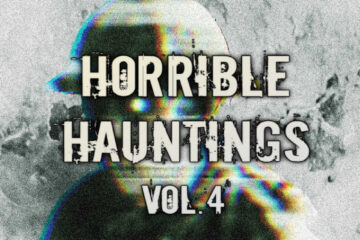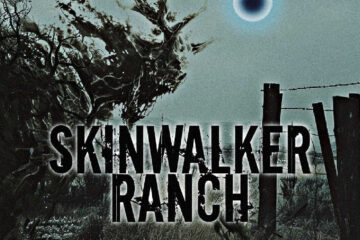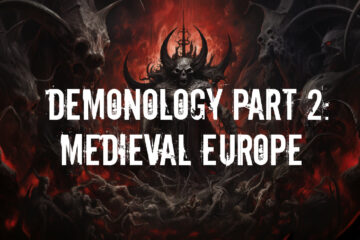Cosmic Horror is most likely a term you’ve heard before, or many times if you are interested in the stranger side of fiction. But, just what is Cosmic Horror? And why does it have such a strong fandom even though there’s little representation of it in movies and T.V. Shows? Well, interestingly enough, it’s not the easiest genre to describe or portray in film for that matter. And the cerebral nature of Cosmic Horror content isn’t the most accessible for an average everyday person. However, a quote from H.P. Lovecraft sums it up nicely.
“The oldest and strongest emotion of mankind is fear, and the oldest and strongest kind of fear is fear of the unknown”
-Lovecraft.

The movie Annihilation is a fantastic take on Cosmic Horror.
So, though anyone and everyone can feel horror and appreciate horror movies, it takes someone with imagination to appreciate Cosmic Horror. It takes no intellect or imagination to consume gore porn, jump scare simulators, and slashers. With modern filmmakers thinking a movie is better, the more senseless violence they pump into it and call it a day. No, Cosmic Horror demands more than mindless stimuli to appreciate. The greater the imagination, the more one can paint their own canvas of the unknown. And if you look at Lovecraft in his private life, the man was literally scared to death of everything, and he had a formidable imagination. It’s no wonder his work has changed the nature of fiction forever.
In truth, humanity is infantile in its knowledge of existence, and what we don’t know is so vastly more than what we do know; there is no point in even comparing the two. Humanity’s accumulated knowledge is less than a grain of sand at the beach when compared to all the sand in all oceans of the entire planet combined. We have only begun to wake up and advance to anything resembling an understanding of the Universe. Humans are arrogant semi-intelligent primates, but everyone has to start somewhere.
Cosmic Horror takes this false sense of security we as a species have built around us and annihilates it in the most intimate way possible. Humans love to label and categorize everything to give us a false sense of control, but what happens when a person is introduced to something that doesn’t care about all their little pre-conceived notions about reality, the human race, and the cosmos itself? This is the essence of Cosmic Horror. It completely eviscerates everything we think we know and reveals our existence’s genuinely terrifying unknown nature and naive views of the world. So, it’s no wonder that most protagonists in Cosmic Horror become consumed in insanity or suffer a fate worse than death.
“The most merciful thing in the world, I think, is the inability of the human mind to correlate all its contents.”
-Lovecraft.

Shoggoth from the Cthulhu Mythos.
The only real salvation or thing that can protect someone in Cosmic Horror is ignorance. The more knowledge gained, the closer to doom or madness. After all, what would happen if you encountered something that defied the very laws of nature? Or defied physics or gravity? They are merely humanity’s laws of understanding, anyway. But what would such a situation do to your mind? That’s a question worth pondering. How much do you think your mind would be able to handle before it just breaks down?
Cosmic Horror takes this subconscious fear and brings it from the shadows into the light. For what is more frightening than existential dread and all the doubts humanity collectively suppresses into the unconscious? Of course, this subgenre still has all the things that draw people to the Horror Genre in general, with enough blood and guts to satisfy any gorehound. Body horror plays a particularly prominent role. The thing is, though, this isn’t the point, just an added side-effect.
The monsters of Cosmic Horror are so beyond ordinary humans; it’s like comparing a person to an ant. At its heart, the message is that humans are just playthings in a cosmos of uncaring, unknowable forces at play older than Earth itself. The eldritch abominations roaming the dark vastness of space and time were beyond ancient before a human even learned how to make a fire. Many of the eldritch horrors can’t be beaten or stopped, but at best, survived. For example, how can you defeat a mathematically larger house on the inside than the outside when measured and randomly generates a never-ending abyss in your closet? It’s these types of madness-inducing anomalies Cosmic Horror protagonists confront.

You should read House of Leaves.
The terror of this subgenre revolves around pure unadulterated existential dread and the sheer insignificance of our existence. The themes are more psychological horror in nature, with a heavy lean into supernatural, paranormal, and metaphysical undertones. The occult is an often repeating plot beat, with secret cults conducting heinous crimes in the background. Murderous madmen stalk from the shadows, and everyone seems to be part of a conspiracy. Secret societies, cultists, and corrupt elite are common themes, with these clandestine factions vying for secret knowledge or seeking hidden power from unseen eldritch entities.
With paranoia and distrust comes isolation because characters often find themselves alone. Either no one believes their stories or they are unwelcome and treated with prejudice. Cosmic Horror protagonists are often outsiders and draw ridicule from the ordinary population. So characters often find themselves against impossible odds and alone, with their sanity slowly dissipating throughout a story. In the end, reality and hallucination are indecipherable from one another.
“I have seen the dark universe yawning, where the black planets roll without aim, where they roll in their horror unheeded, without knowledge, or lustre, or name.”
― H. P. Lovecraft.

Go watch Color Out of Space.
There are no typical happy endings in the Cosmic Horror genre, and most of the protagonists make it out insane if they make it out alive at all. Anxiety slowly creeps up to greater and greater heights, usually culminating in the destruction of how the characters view reality and their place within it. In my opinion, Cosmic Horror reveals very real truth humanity refuses to look at or accept, but at the same time goes overboard into complete nihilism at times (but that’s part of the fun).
Overall though, Cosmic Horror is a subgenre of Science Fiction with overlapping horror elements. Much is indescribable and allows the depths of our imagination to conjure up nightmarish visuals. As stated in the name, the horror is cosmic, and the insignificance of our existence is laid bare for all to see. It does fit like a glove into a subgenre of horror, but one could easily associate it with a plethora of subgenres. The dynamic nature of Cosmic Horror is one of the attributes that makes it so unique, and it leaves the doors wide open for writers to go wild with little in the way of how they see fit to tell their tale. Even Lovecraft openly allowed other writers to write stories in his fictional universe freely.
However, though Lovecraft is the most renowned Cosmic Horror writer, he’s actually not the one who created the genre. Algernon Blackwood wrote similar strange tales among others, but, at the time, the genre hadn’t even been established yet. So the early days of Cosmic Horror are mirky, but there were more writers of it than just Lovecraft. And the genre has since taken roots and grown into a sprawling myriad of content that’s only ever increasing in popularity.




0 Comments